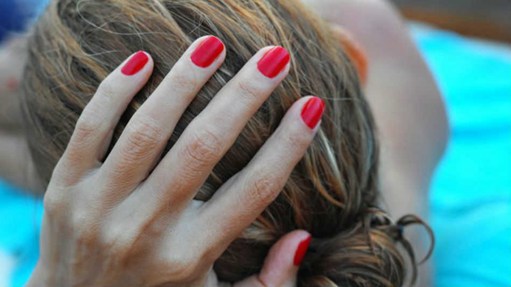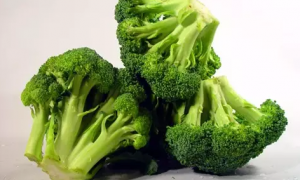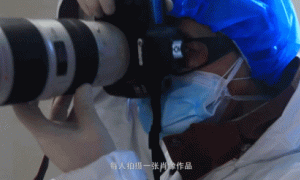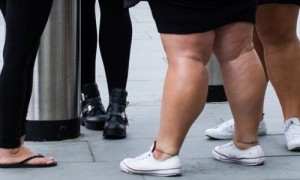导读:对于很多人来说,脱发都是一件烦恼,却又难以治疗。继打印皮肤后,欧莱雅又要用3D打印技术帮你长头发,有望彻底解决脱发问题。

Hair follicles created by a process similar to 3D printing could one day be used as implants, L’Oreal has said.
欧莱雅宣称用类似于3D打印技术创造的头发毛囊有望可以用来植发。
The cosmetics firm is partnering with a French bio-printing company called Poietis, which has developed a form of laser printing for cell-based objects. Hair follicles have not been created this way before and the firms expect it will take at least three years to adapt the process.
这家化妆品公司现与一家法国生物打印公司Poietis合作,Poietis已经开发出一种激光打印技术,可以打印以细胞为基础的物体。在此之前,毛囊从未以这种方式被制造过,这家公司预计这至少需要三年的适应过程。
However, one hair loss charity said it was too early "to be getting excited". L’Oreal already uses 3D printed skin in its product research.
然而一家脱发慈善机构说:“不要高兴太早”。欧莱雅已经把3D打印皮肤用于产品研究。
"If we manage to bio-print a hair follicle we will enhance our knowledge of both hair biology and some of the mysteries of hair growth and loss," Jose Cotovio, a director at L’Oreal’s Research and Innovation division, told the BBC.
欧莱雅研究与创新事业部总监Jose Cotovio告诉BBC记者:“如果我们能够成功的用生物打印出头发毛囊,将刷新我们对毛发生物学和一些头发生长和脱落谜团的认知。”
Initially the follicles would be used to test new products, he added. "Hair loss is very emotional for some people and very distressing - if we succeed in identifying some ingredients that can fight this it will be a huge revolution.
他还提到:“首先毛囊将被用于测试新产品。对一些人来说,脱发很容易影响情绪,让人心烦。如果我们可以成功鉴定一些可以对抗脱发的成分,这将是一个巨大的革命。”
"The next step is, will it be possible to implant? This is the holy grail." The technique will make use of a laser-assisted bio-printing process developed by Poietis over the past couple of years.
“下一步,植发是可能实现的吗?这才是“圣杯””。这项技术将借助Poietis在过去几年研发的激光辅助生物打印技术实现。
It begins with the creation of a digital map that determines where living cells and other tissue components should be placed to create the desired biological structure. This takes into account how the cells are expected to grow over time.
首先要创建一个数字地图,这个地图可以确定活细胞和其他组织成分应该置于何处以产生所需的生物结构。这考虑到了细胞预计将如何随时间生长。
The file is then turned into instructions for the printing equipment, so that it can lay down tiny droplets made out of the cell-based "bio ink" one layer at a time.
然后这个文件就成为了打印器设备的指示,以便设备把基于细胞生物墨水的微小滴液一层一层地铺好。
The printing process involves bouncing a pulsing laser off a mirror and through a lens, so that when it hits a ribbon containing the bio ink, a droplet of the matter falls into place. about 10,000 of these micro-droplets are created every second.
打印过程包括把脉冲激光从反射镜弹到透镜,然后当激光击中带有生物墨水的带子,会有一滴落在正确的位置。每一秒可以产生10000滴这样的微滴。
The resulting organic tissue would then need time to mature before the hair follicles are ready to grow. Poietis says it has already used the technique to create cartilage and other viable types of cell lines.
在毛囊可以生长之前,所形成的有机组织需要一定时间变成熟。Poietis称这项技术已被用于创造软骨和其他有生长能力的细胞系。
It typically takes about 10 minutes to print a piece of skin 1cm (0.4in) wide by 0.5mm (0.2in) thick. However, since hair follicles are complex and consist of 15 different cells in a sophisticated structure, they may take longer.
打印一块宽1厘米(0.4英寸)厚0.5毫米(0.2英寸)的皮肤通常需要大约十分钟。但是头发毛囊更加复杂而且一个复杂的结构由15种不同细胞组成,所以可能需要更多时间。
Poietis is not the only company working on bio-printing, but most others use extrusion - which involves pushing a bio-ink through a nozzle - rather than lasers to build their tissue. Poietis suggests its technique puts less stress on the biological matter, meaning there is less risk of causing it damage.
Poietis并不是唯一一家做生物打印的公司,但是大部分其他公司使用挤压技术,涉及到通过一个喷嘴来挤压生物墨水,而不是用激光建立组织。Poietis表示他们的技术对生物物质施加的压力更小,也就是说破坏生物物质的风险更小。
But its chief executive Fabien Guillemot acknowledges that adapting it to create hair follicles will be challenging. "It’s of the most complex objectives so far of all the bio-printing projects that we have created," he said.
但是首席执行官Fabien Guillemot承认应用这项技术来创造毛囊是有挑战性的。他说:“这是我们目前所有用生物打印工程创造的最复杂的物体之一。”
Alopecia UK - a charity that provides support and advice about hair loss - had mixed feelings about the development. "It is encouraging to know that companies such as L’Oreal are investing in technology that may help those with hair loss in the future," said spokeswoman Amy Johnson.
Alopecia UK-一家对脱发问题提供支持和建议的慈善机构对这个技术的发展喜忧参半。女发言人Amy Johnson说:“了解到欧莱雅等公司正在研究未来可以造福脱发群体的技术,这是件鼓舞人心的事情。”
"However, we would suggest it’s still very early days to be getting excited about what this potentially could mean for those with medical hair loss. At this point it is unclear as to whether this technology could benefit those with all types of hair loss.
“然而我们认为:为这项技术可能给脱发群体带来的福利而兴奋还为时尚早。目前仍不清楚这项技术是否能造福于所有类型的脱发人群。”
"Also, if this new technology did lead to a treatment option, given the high costs of existing hair transplant procedures, how many people will be able to realistically afford any new technological advances that may become available? As with any other research and development into processes that may be able to help those with hair loss, we watch with great interest."
“况且,考虑到现存的植发方式产生的高额费用,即使这项新技术确实可以提供一个治疗选择,又有多少人可以真正承担任何有可能实现的新技术所需的费用?我们对任何其他有可能帮助脱发人群的研究和发展都抱有极大的兴趣。”







